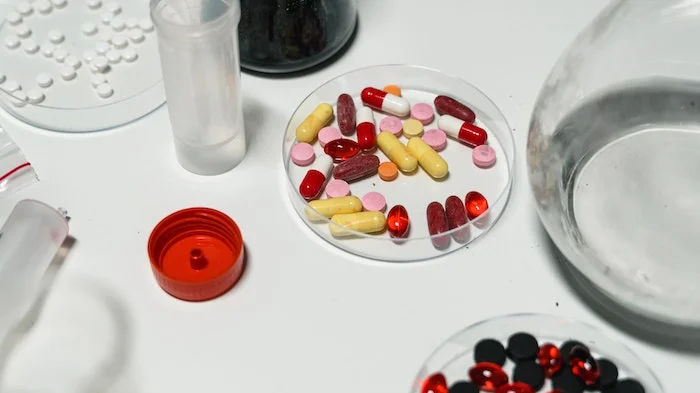Drug & Alcohol Rehab in Crosby
Rehab and recovery are words often used interchangeably, but the former refers to a specific sequence of treatments used to help those with drug or alcohol addiction.
It is widely held as the most effective means of ensuring long-term addiction recovery. [1]
Drug and alcohol rehab in Crosby may seem like a daunting prospect, but it is actually very simple. Understanding it can go a long way in reducing confusion and doubt, as well as encouraging individuals to take steps towards seeking the help they need.
For more information about drug and alcohol rehab in Crosby, contact us today at 0800 088 66 86.
Medical Detox

Drug and alcohol rehab in Crosby begins with detox. This treatment sees an individual gradually reduce the amount of a substance they consume in order to slowly wean their body and become sober.
The reason for this treatment’s priority during rehab is that the body poses a very large obstacle to recovery. When physical dependency has developed, individuals can find it impossible to resist the overwhelming urge they feel to continue consumption.
With their body experiencing severe imbalance whenever sober, detox is required to alleviate individuals from this compulsion and enable their bodies to function while completely sober. It also gives them the clarity of mind to engage with therapy.
Addiction Therapy

With physical sobriety established, individuals move on to therapy. During this treatment, they focus on the thoughts and feelings responsible for their unhealthy behaviour and learn techniques for managing the stresses of their life without relying on substance use.
Therapy is an equally important stage of rehab as detox. Even when physically sober, individuals will still feel the desire to use a substance. This results from the triggers which sparked their behaviour, to begin with, and still exist after detox.
Tackling triggers, therefore, grants individuals the psychological and emotional independence to sustain the sobriety they have fought to establish.
For more information about drug and alcohol rehab in Crosby, contact us today at 0800 088 66 86.
Relapse Prevention
The final stage of drug and alcohol rehab in Crosby is a forward-looking treatment, with a priority on protecting the progress that has already been made. This conclusive step is relapse prevention.
When an individual has recently become sober, they are at risk of falling back into the habits they have left behind when they return home. Facing addictive triggers can be overwhelming without the guidance of therapists, and this pressure can often be too much.
As normal as it is to relapse, rehab programmes want to minimise the risk as much as possible. To do this, relapse prevention equips individuals with methods of trigger management which they can rely on when they are at home and independent.
What Makes Detox Work?
If an individual were to attempt to detox without the support of a rehab programme, there is a high chance that they would fail and do themselves harm. But why is this?
The quick answer is that detox within rehab is orchestrated by medical professionals, but there are two ways in which this translates into safe success.
Firstly, doctors are able to pace the detoxing process to ensure that the body progresses towards sobriety at a speed that it can tolerate. Unsupervised, individuals are likely to attempt to stop their consumption all at once, and they lack the resolve for tapering off.
Secondly, doctors are able to prescribe Benzodiazepines in the event that withdrawal symptoms arise. These medications can dampen symptoms and keep individuals on track in instances where they would otherwise succumb to cravings.
How Does Recovery Continue After Rehab?

Following relapse prevention, drug and alcohol rehab in Crosby concludes and allows individuals to return to their everyday lives. It is a big achievement to complete rehab and be deemed strong enough to leave treatment, but this is also a time of caution.
Going home puts individuals face-to-face with their addictive triggers once again, and many can struggle without the support of doctors and therapists. However, leaving rehab does not necessarily mean that individuals need to continue their recovery alone.
Aftercare services are available, offering treatment sessions for those who want to continue working with their addictive triggers and tendencies. Therapy sessions can continue, as well as check-ins with doctors to ensure physical health is maintained.
Finishing rehab also grants the opportunity for individuals to access support tailored to their personal challenges. Those with a certain addiction can attend support groups which specifically seek to help those who share experiences and concerns.
For more information about drug and alcohol rehab in Crosby, contact us today at 0800 088 66 86.
Does Drug & Alcohol Rehab in Crosby Cost a Fortune?

Rehab clinics offer a lot of services, and this can quickly lead individuals to question whether they can afford to access them. There is often an association between addiction treatment and high fees, but the reality is that there is a lot of variation in what facilities charge.
A week of treatment in the UK averages out to a price of £14,000. Prices can, however, be found between £1,000 and £10,000 – and more luxury-oriented facilities charging as high as £70,000.
Of course, not everyone will have the disposable funds to afford even the cheapest options for drug and alcohol rehab in Crosby. For those who are in this situation, local councils often allocate funds to support those who need addiction support but can’t afford it.
Will Drug & Alcohol Rehab in Crosby be a Quick Process?
It’s important that those who need help get it as fast as possible, but that is not the same as saying that drug and alcohol rehab in Crosby is a quick process. Individuals will need to invest a bit of time into getting better, but how much time are we talking?
Addiction treatment tends to last for 28 days. Detox usually requires a week to cleanse the body, and a further 2-3 are needed for therapy and relapse prevention to prepare individuals for returning home and sustaining their progress.
However, there are instances where an individual may require longer than 28 days in order to make a long-term recovery. This may be the case due to a particularly severe addiction, or the existence of a complicated physical or mental health condition.
For more information about drug and alcohol rehab in Crosby, contact us today at 0800 088 66 86.
Is it Possible to Help a Friend Who Has an Addiction?

Detecting an addiction in a loved one or colleague can be a very stressful experience. However, it is important to recognise that uncovering an addiction means enabling an individual to kickstart their recovery process.
But how can you do this?
1. Talk to them
Beginning with the simplest option; you always have the method of having a quiet chat with the person about their situation. By asking about their substance use – while maintaining a gentle and natural tone – you can learn a lot about how they perceive their behaviour.
When doing this, it is essential that you do not assume or confront. Many who live with addiction are in denial, and so any amount of pressure will cause the individual to reject your concerns, making the whole thing pointless. [2]
Instead, speak from a genuine place of care and love, and they will be more likely to listen.
2. Host an intervention
Often seen in television shows, interventions can genuinely be an effective means of helping someone who has an addiction.
Interventions are events which bring family and friends together to address the problem of addiction in an individual’s face. Everyone shares how they have been affected by the condition, and then offers ways in which they will support them going forward.
While the tone needs to remain supportive, interventions have a gravity which makes them more effective in convincing individuals to reassess their behaviour. They also allow for consequences to be established and enforced if an individual ignores the problem.
3. Explore alternative interventions
Interventions need not only follow the format of a single event. They can also be exacted over a long period of time. One such example of this sort of intervention is the CRAFT approach.
With CRAFT, family and friends unite but in a different way. They cooperate to reward or punish an individual’s behaviours in accordance with how healthy they are. For example, sober days are rewarded whereas substance use is punished.
CRAFT is able to work because of the consistent reaction of so many people in the individual’s life. Only via this unity can the positive associations they developed around substance use be replaced by those which are more healthy and realistic.
For more information about drug and alcohol rehab in Crosby, contact us today at 0800 088 66 86.
Tips for Getting the Right Kind of Help

For those looking to start their road to recovery, the world of drug and alcohol rehab in Crosby can be confusing. Where do you start looking, and how are you supposed to know what’s applicable and what’s not?
There are several things you ought to bear in mind when looking for treatment, as well as a few places you can turn to for guidance.
1. Get some expert advice
The first thing you can do to streamline your rehab search is to ask a doctor or GP for help. They will be able to give you a medical perspective and suggest treatments that you ought to benefit from should you enter rehab.
Alternatively, you can reach out to an addiction support charity. These are organisations which offer support and guidance as to what rehab options exist within an individual’s local area. At Rehab Recovery, we offer this kind of help.
2. Consult your budget and availability
Time and money are important factors to consider when selecting rehab. Your budget will restrict what kinds of programmes you can afford to enrol on, and each facility will only have a certain amount of space to accommodate new patients.
Take the time to look at what money you have available – or what funds you might be able to acquire from a local council – and how much time you have to dedicate to treatment. Work holiday, sick leave, arranged absence – consult the options at your disposal.
Also, take the time to speak with your family and anyone who is dependent on you. How long can they manage without you, and how might you be able to support them while you undergo rehab? For example, how might you continue to support children?
3. What kind of atmosphere/experience are you looking for?
Everyone is different, and each individual going through rehab will benefit from a slightly different approach and attitude towards the process. Some require a strict and regimented routine in order to stay on track, whereas others require comfort and relaxation.
There are a few ways in which individuals might assess different facilities with this concern in mind. The most simple is to visit different rehab centres and see for themselves what atmosphere and ethos each has.
Alternatively, they can turn to the internet. There will be reviews of each treatment programme left by previous patients, and these can offer a good insight into the ways each facility makes patients feel.
Rehab Recovery – How We Can Help

If you are struggling with addiction, or you know someone who is, it’s essential that you get the necessary support as soon as possible. Of course, this is much easier said than done, and few understand that better than us at Rehab Recovery.
It can be scary looking into rehab, but our team are on hand to guide you through the whole process. Whether you need more information about what options are available in Crosby, or just someone to talk to, we are here to help.
If you need us, don’t wait to give us a call on 0800 088 66 86.
References
[1] https://www.ncbi.nlm.nih.gov/books/NBK424859/
[2] http://pure-oai.bham.ac.uk/ws/files/25519189/DENIAL_PICKARD_M_L_FINAL_PRE_PROOF.pdf


